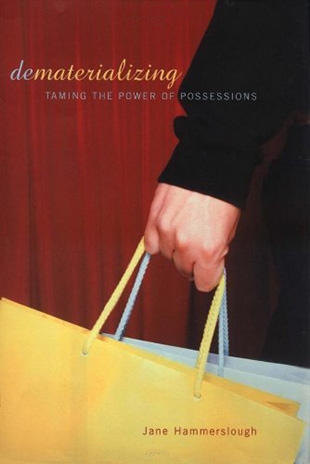Here are some alarming statistics about the way Americans live, according to a Merck Family Fund study: More than 95 percent of Americans said most of us are "very materialistic," and more than 85 percent believe that young people are far too preoccupied with owning and consuming things. Every week the average American spends six hours shopping while the kids only get forty minutes and working couples only spend twelve minutes a day talking to each other.
There's something wrong with this picture. Our possessions have come to dominate our lives and push aside other important values. That is the conclusion reached by award-winning journalist Jane Hammerslough in this hard-hitting expose of America's out-of-control consumerism. She notes at the outset: "The promise of possessions to fulfill a tangle of needs, wants, and desires is seductive, fast, and easy. But it also takes up space, not just in our closets, but in our lives. It takes up time. It takes up energy. And I found that for me, as well as for people who spoke with me about materialism in their own lives, it may not be enough."
The central thrust of the process of dematerializing is to give up our belief in the power of possessions to answer our deepest needs. Hammerslough demonstrates how the objects of our desire cannot carry all the burdens we place upon them — to provide security, status, well-being, or to combat our feelings of anxiety or powerlessness. Shopping till you drop just isn't enough. The one who has the most toys doesn't win in the end. Consumerism doesn't solve our yearnings for meaning, purpose, and community. Our faith in material solutions must be set aside for another kind of faith that honestly deals with the real suffering, pain, and fear of modern life.
